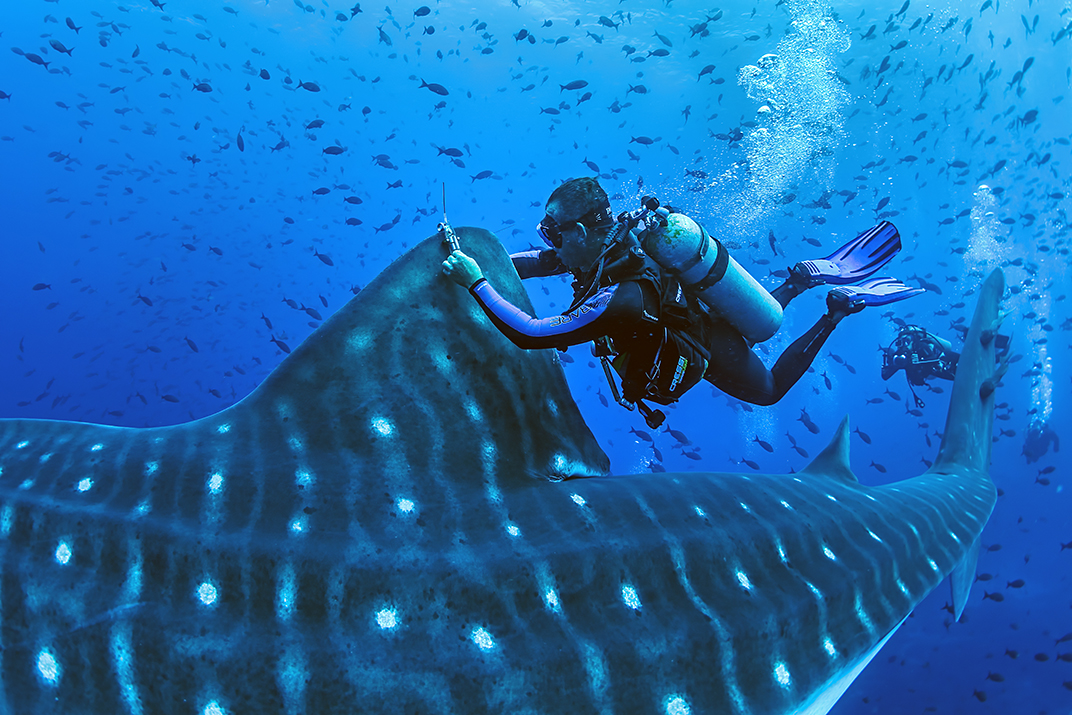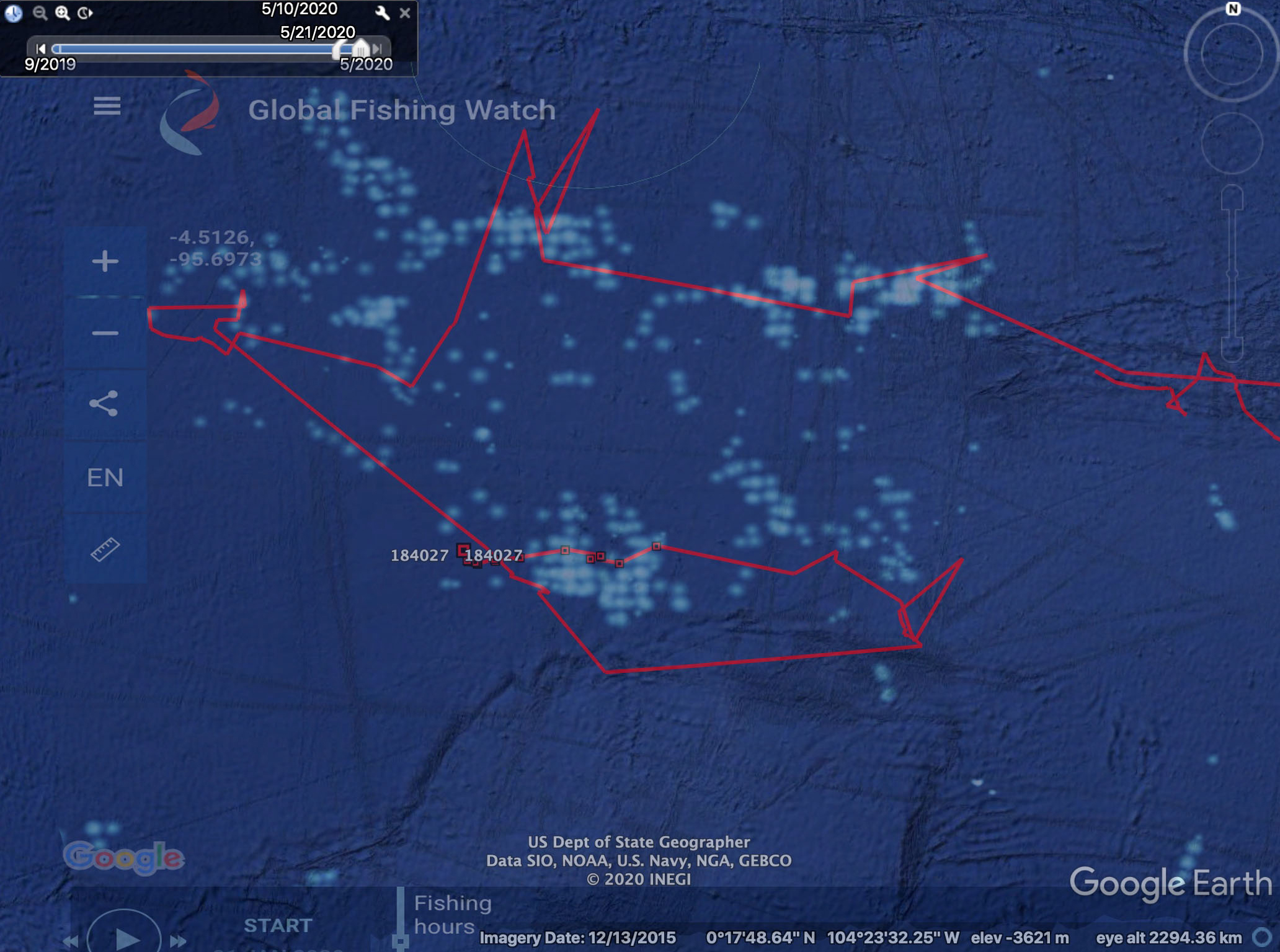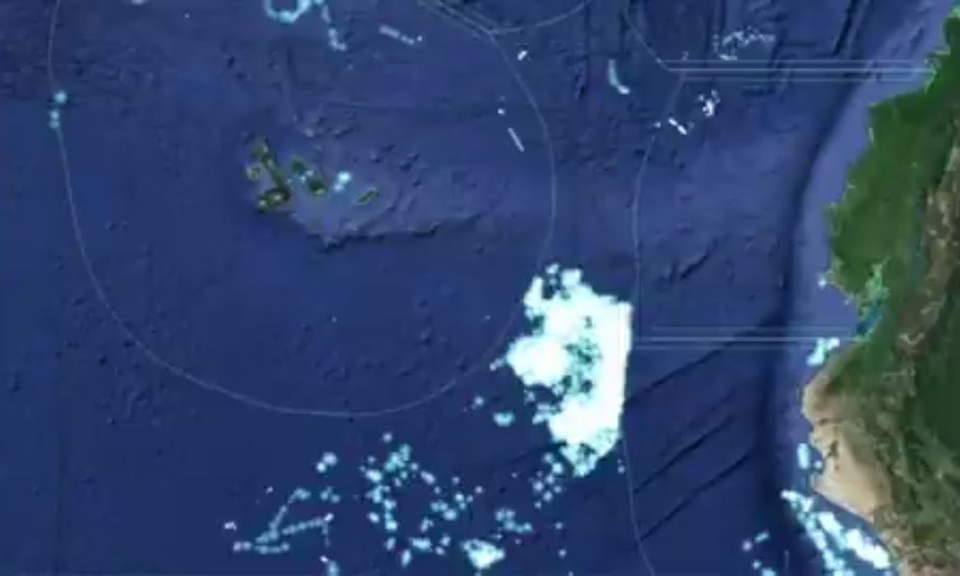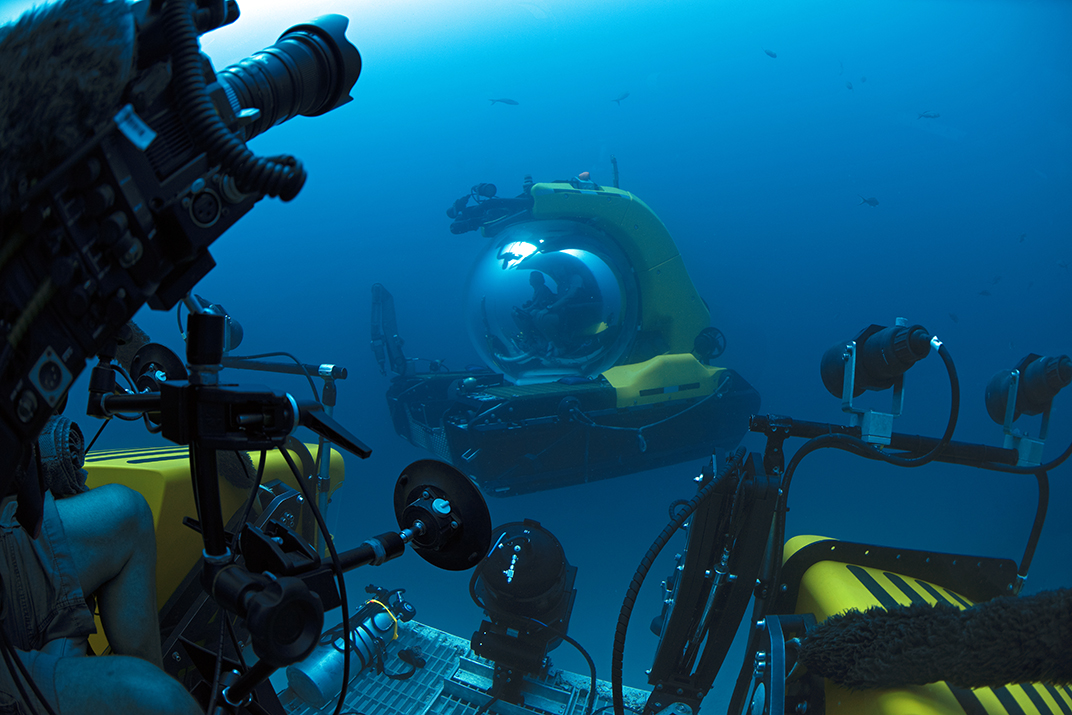Galapagos Conservation Trust: Where Is Hope The Whale Shark?
Our partners, Galapagos Conservation Trust (GCT), support vital conservation work, including monitoring species such as Whale Sharks. In the last 75 years, data suggests that the population of the Whale Shark has decreased by 50%, which highlights the need to find out more about this vulnerable species to save it from extinction.
In September 2019, GCT’s partners tagged a juvenile Whale Shark to track its movements within the South Pacific Ocean. The crew tagged “Esperanza” (which means ‘Hope’ in Spanish), with a state of the art tracking device to her dorsal fin.

From this data, the team aimed to obtain new, scientific information, to help us understand and preserve their breeding grounds as well as to provide an insight on where the sharks spend the early years of their life.
Hope’s team watched intently over 8 months, as the seven metre long, female shark headed west out of the Galapagos Islands.
Unfortunately, towards the end of May 2020, the team lost all transmission in the high sea and waited patiently to see if the signal would pick up again – but it did not.

The expert conservationists decided to look at the data and review the statistics from the last 30 minutes of satellite transmission with Hope.
They found:
– The last signal was located within an area known for intense fishing with a high risk of captivity
– In the last couple of minutes, Hope travelled around 7 – 8 knots (these Whale Sharks are known to reach a maximum speed of 3 knots)
– The signal was strong for the last couple of minutes, suggesting that the tracking device was out of the water

“We cannot say for certain what happened to her and cannot be sure she was captured” Galapagos Whale Shark Project
So – what’s next?
Jonathan Green is a Craghoppers ambassador, who works in partnership with GCT, and is the Founder and Director of the Galapagos Whale Shark Project. He has since travelled out to carry out further research on Whale Sharks, to highlight the issue and further investigate the threats affecting the species. It is known that Whale Sharks can be targeted by illegal, unregulated, and unreported fisheries, for their fins, oil and meat.
GCT has been supporting the proposed ‘Cocos- Galapagos Swimway’ since 2018, to support their scientific partners. Together, they are gathering evidence to create a 120,000 km2 route of protected waters, so endangered species, such as Whale Sharks, can be secure when they leave a Marine Protected Area (MPA).
We’ll post an update as soon as Jonathan is back from his project work. In the meantime, if you’d like to find out more about GCT and their conservation programmes, click here: https://galapagosconservation.org.uk/
Craghoppers is proud to support GCT as part of our Mindfully Made initiative, by donating 40p from the sale of each piece of NosiLife Adventure Swimwear range to the trust.

